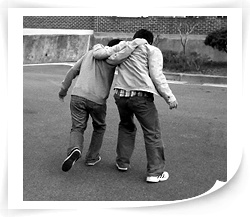The work
Chapter six, as described in pervious chapters, continually discusses the hardship of the prisoners in the concentration camps. How the painful and dreadful days full of works are set for prisoners. I found this chapter quite interesting because it seems to reflect myself a little bit when I am faced with some back breaking tasks. The concept of asking latrines for prisoners, in fact, happens in my life quite often. For instance, when my parents clean the house, they would always open all the windows and doors including my room to clean up. When my parents open my door, it is really hard to ignore them and continue what I am doing. I would either have to help them or do other “natural thing.” The “natural thing” that I found to do to escape the cleaning “session”, I often go to the bathroom and sit there for a while. After I listen for where the vacuum is cleaner is located, if the vacuum cleaner passes my room, I would go back to my room and continue what I was doing. Although it is little embarrassing to write about this in my journal, in Primo Levi’s case, it was essential for the prisoners to develop those kinds of skills to give their bodies a little bit of rest. For instance, when I introduced my way of avoiding hard tasks, the writing was light-hearted and nothing serious. However, when Primo Levi described about his latrines, it was rather serious. “We have the advantage that our latrine is rather far; this permits us, once a day, a slightly longer absence than normal.” This serious tone implies that Primo Levi was not just introducing it to add humor to the book; rather it was one of the essential skills that he developed as strategies for survival. It was quite threatening to realize that what we see as entertainment can be one of the survival strategies in the concentration camps, and this suggests how hard the life was in the camps.
Sunday, March 4, 2007
Subscribe to:
Post Comments (Atom)

No comments:
Post a Comment